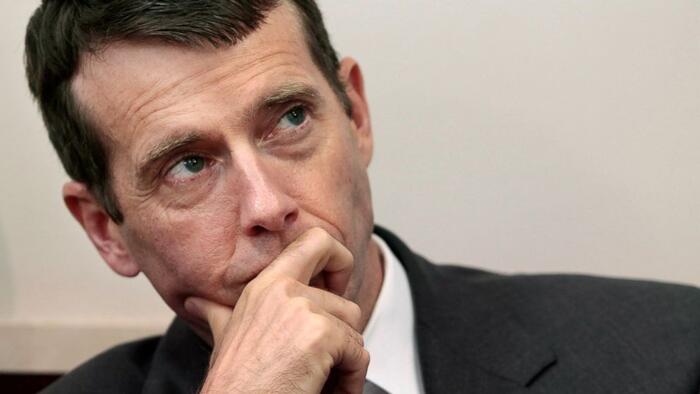Former senior advisor to President Obama and now an advisor to Vice President Kamala Harris, David Plouffe, recently departed from the social media platform X (formerly Twitter) after making controversial comments suggesting that the electoral defeat experienced by Harris was largely due to President Joe Biden’s failure to withdraw from the race sooner. Plouffe’s remarks, perceived by many as a veiled criticism of Biden, coincided with troubling news regarding Harris’s campaign finances, notably a substantial debt following the election. His exit from X was seen by some as an effort to distance himself from the unfolding scandal. This incident illustrates the ongoing tension within the Democratic Party as it grapples with the aftermath of the election and attempts to navigate internal dynamics.
The financial state of Harris’s campaign revealed a significant concern, with reports indicating that her campaign concluded the election season with at least $20 million in debt. Despite raising over $1 billion and having $118 million in the bank just weeks prior, the campaign faced scrutiny for its financial mismanagement. This stark contrast raises questions about how resources were allocated and whether the campaign’s strategies were effective. The implications of carrying such a debt could pose challenges for Harris’s political future and damage her credibility within the party.
Adding to the controversy, Breitbart CEO Matt Boyle reported a claim from a staffer within the Harris campaign suggesting the existence of a scandal warranting an audit to examine the campaign’s financial practices. This whistleblower, identified as someone close to Deputy Campaign Manager Rob Flaherty, indicated that Flaherty was attempting to sell off the campaign’s fundraising email list in a desperate bid to alleviate financial burdens. Such actions would raise ethical questions regarding the handling of campaign assets and fundraising practices, further complicating the narrative surrounding the campaign’s performance.
Internal campaign dynamics are also becoming a focal point of scrutiny, with reports claiming that the campaign’s leaders, particularly Jen O’Malley Dillon, faced criticism for prioritizing high-cost concert events over effective grassroots tactics and digital engagement. These concerts featuring major artists reportedly strained the budget, diverting funds from essential campaign operations, and led to workforce reductions in certain campaign offices. The fallout from these decisions may complicate Harris’s efforts to consolidate support within the party, as many campaign staff expressed dissatisfaction with the leadership and management style occurring throughout the process.
Election analysts have highlighted the challenges Harris faced in articulating a clear and compelling economic narrative during the campaign. Experts suggested that her messages failed to resonate with key voter demographics and that the campaign underestimated the appeal of Trump’s straightforward messaging. This was particularly significant given the general economic sentiment among voters and their reception of issues around reproductive rights, which many had expected would galvanize support. The perception that Harris never successfully established her identity or message may hinder her chances of gaining traction in future political endeavors.
As the Democratic Party moves forward, the fallout from the Harris campaign’s financial and operational missteps may have lasting implications on its unity and strategic direction. The party will need to address underlying issues related to leadership, fundraising, and communication strategies as they seek to regain voter trust and confidence. The internal conflict highlighted by Plouffe’s comments and the financial scandal presents an inflection point for the party, emphasizing the need for a cohesive and effective approach to upcoming election cycles and policy messaging in a highly polarized political landscape.

